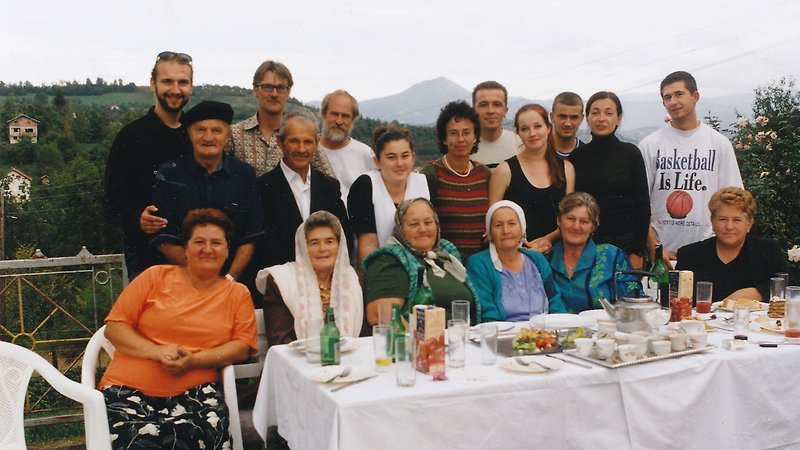
Screened as part of NZIFF 2002
Good Husband, Dear Son 2001
Goede man, lieve zoon
From a distance, the sleepy Bosnian village of Ahatovici looks idyllic, but distance is not a concept that interests master documentarist Heddy Honigmann, and that illusion is immediately shattered by eye-witness testimony of events of unfathomable horror that unfolded there ten years ago. In 1992, Chetniks rounded up all of the men in the village and tortured them for twelve days. Then they forced the survivors into a bus and threw grenades in after them. In less than a fortnight, four-fifths of the male population of Ahatovici were murdered.
Honigmann tackles the tragedy through the women left behind. It’s not hard to find the grieving widows: not a single house was untouched by the massacre. The women are wonderfully candid about their missing spouses and sons: this one was a bit of a tyrant; that one a phenomenal lover. (What does Refik miss most about her husband? Making love six times a night.)
When the Chetniks took their men, the scourge was so complete that few physical traces remained, so these women have learnt to treasure the one or two personal objects or photographs that were overlooked. These remnants, and the women’s relationships with them, are the most potent things in the film, and the filmmakers wisely give them the space they demand. The lost world to which these totems – a trowel, a hat, a t-shirt, a tattered snapshot – allude is dark, fragmentary and deeply coded.
This film continues Honigmann’s series of sharp, highly emotional yet utterly unsentimental explorations of the short- and long-term after-effects of war. Those earlier films (The Underground Orchestra, Two Minutes Silence, Please, Crazy) were among the best non-fiction films in their respective Film Festivals. Good Husband, Dear Son may be even better. It is certainly one of her most concentrated films, covering multiple histories of pain and loss in under an hour. Honigmann makes her points with such swiftness and unerring precision that further footage would be redundant. That said, the film is never hurried, and can always find time to linger over a mother’s fingers as they tenderly caress her son’s watch-face, the hands stopped at the moment he was killed. — Andrew Langridge